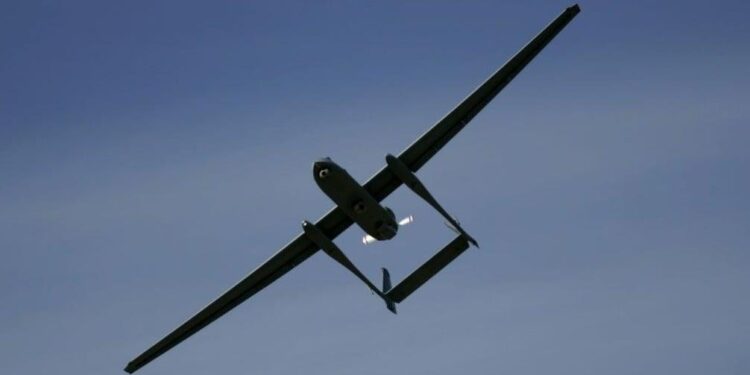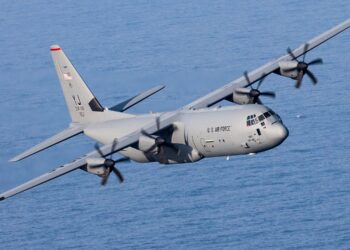Rising Hostilities: Israeli Drone Targets Humanitarian Aid Flotilla in International Waters
A troubling escalation of conflict has emerged in the Mediterranean, as reports indicate that an Israeli drone has struck a humanitarian aid flotilla operating in international waters near Malta. This incident, confirmed by a non-governmental organization (NGO) involved with the mission, has ignited widespread condemnation and raised urgent questions about its implications for humanitarian efforts in the region. As global observers respond to this distressing event, critical inquiries arise regarding the legality of military actions conducted in international waters and their potential repercussions on ongoing humanitarian operations aimed at assisting those affected by the protracted crisis in Gaza. This article explores the details surrounding this reported strike, its context within the broader conflict landscape, and reactions from various stakeholders.
Drone Attack on Humanitarian Mission
Reports suggest that an Israeli drone targeted an aid flotilla en route to Gaza while it was positioned in international waters near Malta. Humanitarian organizations have denounced these actions as violations of maritime law that endanger lives at sea.Eyewitness accounts describe scenes of turmoil aboard the vessels as crew members attempted to navigate through unexpected aerial assaults. The activists onboard were carrying essential supplies such as food and medical equipment, underscoring the dire humanitarian conditions unfolding within Gaza.
The consequences of this military action are likely to exacerbate tensions within an already volatile region. International observers and human rights advocates are calling for immediate investigations into these strikes and accountability for those responsible for targeting aid vessels. Many are questioning not only the legality of such attacks but also their implications for freedom of navigation and humanitarian missions operating beyond any national jurisdiction—especially given established principles under international law designed to protect humanitarian endeavors.
Wider Implications: Human Rights Law & Maritime Security
The attack involving Israeli drones against a humanitarian flotilla raises significant concerns regarding compliance with humanitarian law and state responsibilities concerning maritime security. Under established norms governing armed conflict, protecting civilians and aid workers is paramount—particularly within war-torn regions. Targeting vessels engaged in delivering assistance presents severe ethical dilemmas while undermining efforts aimed at providing crucial support to vulnerable populations.
This act of aggression also jeopardizes maritime security while endangering those involved in delivering aid across borders. Key considerations include:
- Sovereignty Breaches: Military operations violating recognized national boundaries pose risks not only to lives but also assets engaged in relief work.
- Impact on Aid Operations: Such incidents may deter NGOs from conducting rescue missions or providing assistance via maritime routes.
- Potential Increase in Militarization: The incident could prompt nations to bolster naval security measures further complicating logistics for future humanitarian initiatives.
| Main Issues | Possible Consequences |
|---|---|
| Violations of Human Rights Law | Aggressors may face challenges related to accountability due to breaches. |
| Risks to Maritime Security | Aid vessels could encounter increased threats leading possibly heightened military presence at sea. |
| Deterioration of Diplomatic Relations | Tensions between involved states may escalate affecting global diplomatic relations negatively. |
Urgent Calls for Action: Safeguarding Humanitarian Efforts at Sea
The recent incident involving an Israeli drone striking a Gaza-bound aid flotilla has sparked urgent discussions about enhancing protections necessary for safeguarding maritime-based humanitarian efforts. Confirmed by NGOs active on-site,this attack raises critical issues regarding both worker safety during missions and legal frameworks governing military engagement against vessels dedicated solely towards aiding those most affected by crises like that currently unfolding across Gaza’s borders.
To mitigate escalating threats faced by such operations globally stakeholders must advocate strongly towards implementing stronger safeguards ensuring both safety/security throughout supply chains associated with relief work.
Key proposed measures include:
- Enhanced Legal Frameworks: Advocating clearer regulations internationally protecting specifically designated missions focused upon providing necessary assistance via waterways.
- Monitoring & Reporting Mechanisms : Establishing complete systems documenting violations occurring against these types initiatives ensuring perpetrators held accountable .
- Cohesive International Cooperation : Promoting multilateral agreements among nations collectively reinforcing sanctity surrounding all forms related directly towards delivering much-needed resources .
- Aware Campaigns : Raising public consciousness emphasizing importance inherent within ongoing works undertaken amidst conflict zones .
Conclusion & Future Outlook
In conclusion ,the recent strike carried out by Israeli drones targeting a Gaza-bound aid flotilla located offshore Malta underscores significant issues pertaining both toward adherence concerning existing frameworks regulating international human rights laws alongside overall safety protocols associated with various forms related directly toward facilitating delivery essential resources needed during times crisis situations like what currently exists throughout regions impacted heavily due prolonged conflicts.
As advocates push forth demands seeking accountability ,wider implications stemming from such aggressive maneuvers underscore persistent tensions present throughout area while together threatening fragile nature underlying many ongoing relief initiatives being conducted worldwide today .The global community must remain vigilant monitoring developments closely engaging dialog aimed ensuring uninterrupted access allowing vital support reach individuals desperately requiring assistance without fear aggression looming overhead .











